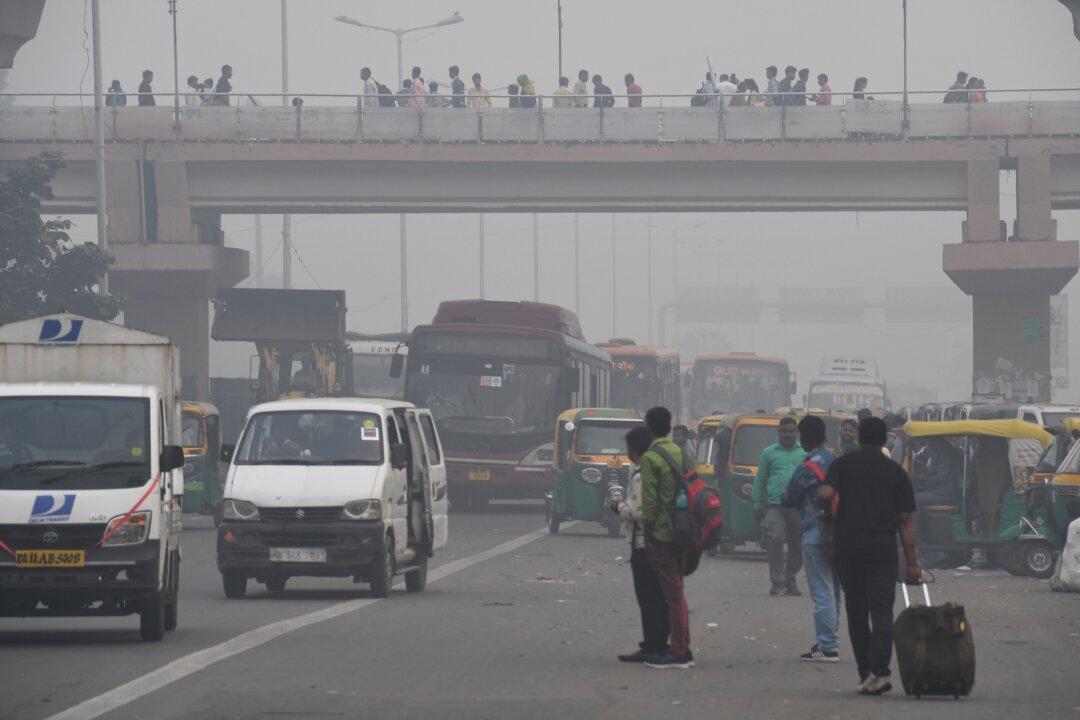Primary schools in Delhi, India, will be closed starting Nov. 5 and outdoor activities for secondary schools will be suspended due to severe air pollution levels, authorities said on Friday.
Smog has formed over the nation’s capital of New Delhi due to vehicle exhaust, factory emissions, and smoke from burning crop stubble. Delhi’s air quality index (AQI) exceeded 400 on Friday, indicating severe pollution that could lead to a spike in respiratory illnesses.





